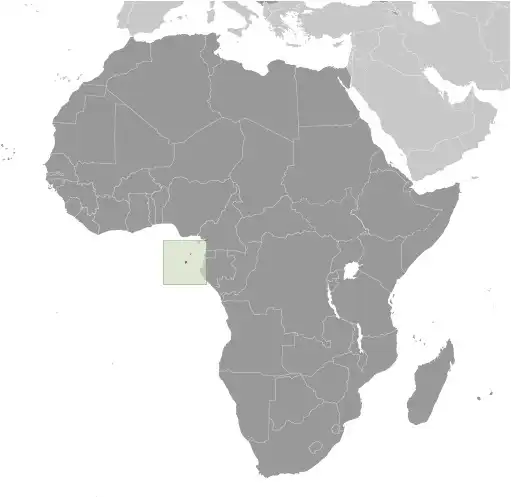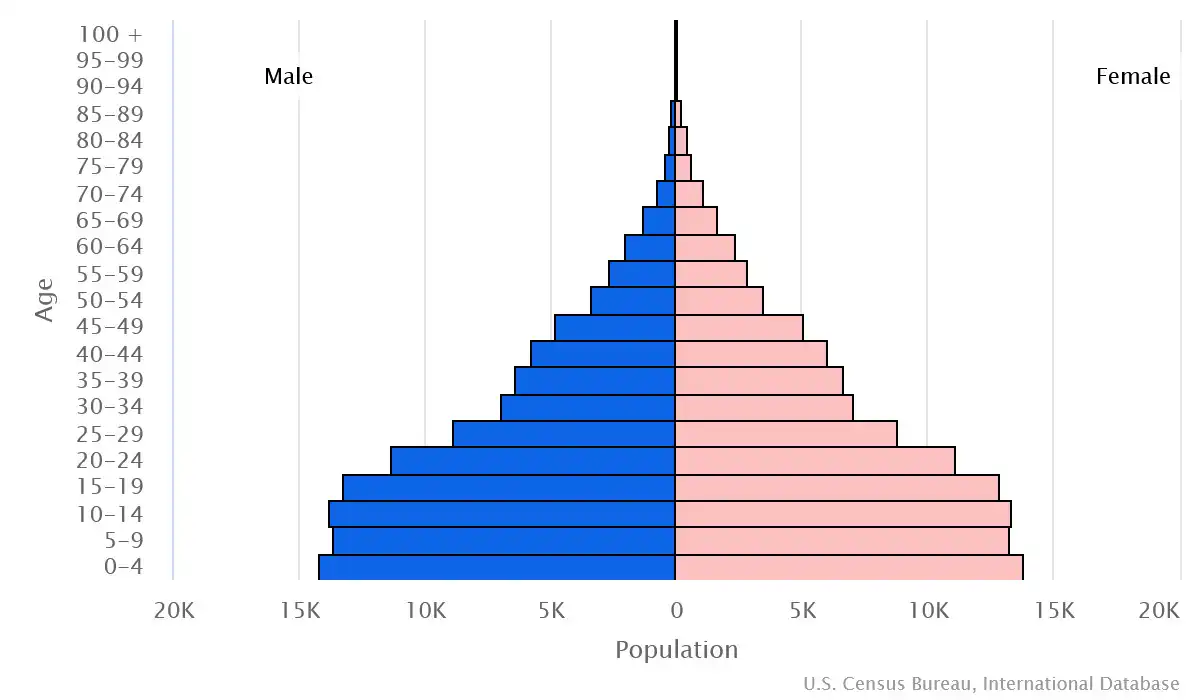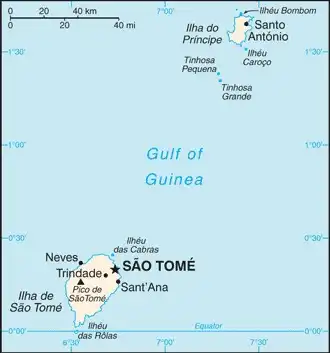
Sao Tomé and Príncipe Country Profile
Key Facts of Sao Tomé and Príncipe

| Government type: | semi-presidential republic |
| Capital: | Sao Tome |
| Languages: | Portuguese 98.4% (official), Forro 36.2%, Cabo Verdian 8.5%, French 6.8%, Angolar 6.6%, English 4.9%, Lunguie 1%, other (including sign language) 2.4%; other Portuguese-based Creoles are also spoken (2012 est.) |
Sao Tomé and Príncipe Demographic Data
Ethnic Groups in Sao Tomé and Príncipe(mostly Chinese)
Religious Groups in Sao Tomé and Príncipe (2012 est.)
Age pyramid of Sao Tomé and Príncipe

Sao Tomé and Príncipe Economy Statistics
Economic overview of Sao Tomé and Príncipe
lower middle-income Central African island economy; falling cocoa production due to drought and mismanagement; joint oil venture with Nigeria; government owns 90% of land; high debt, partly from fuel subsidies; tourism gutted by COVID-19
Sao Tomé and Príncipe Real GDP (purchasing power parity) in Billion $
Sao Tomé and Príncipe Real GDP per capita in $
Sao Tomé and Príncipe's Exports & Imports in million $
Top 5 Import Partnerin 2022 (77%) of Sao Tomé and Príncipe
Top 5 Import Commodities in 2022 of Sao Tomé and Príncipe
- refined petroleum ⛽
- ships 🚢
- electric generating sets 🪙
- rice 🍚
- cars 🚗
Top 5 Export Partnerin 2022 (62%) of Sao Tomé and Príncipe
Top 5 Export Commodities in 2022 of Sao Tomé and Príncipe
- cocoa beans 🍫
- palm oil 🛢️
- gas turbines 🌀
- integrated circuits 💻
- coconut oil 🛢️
Geography of Sao Tomé and Príncipe
Map of Sao Tomé and Príncipe

Land and Water Distrubtion of Sao Tomé and Príncipe
Natural Resources of Sao Tomé and Príncipe
- fish 🐟
- hydropower 💧⚡
Climate inSao Tomé and Príncipe
tropical; hot, humid; one rainy season (October to May)
History of Sao Tomé and Príncipe - a Summary
Portugal discovered and colonized the uninhabited Sao Tome and Principe islands in the late 15th century, setting up a sugar-based economy that gave way to coffee and cocoa in the 19th century -- all grown with African slave labor, a form of which lingered into the 20th century. While independence was achieved in 1975, democratic reforms were not instituted until the late 1980s.
The country held its first free elections in 1991, but frequent internal wrangling among the various political parties precipitated repeated changes in leadership and failed, non-violent coup attempts in 1995, 1998, 2003, and 2009. In 2012, three opposition parties combined in a no-confidence vote to bring down the majority government of former Prime Minister Patrice TROVOADA, but legislative elections returned him to the office two years later. President Evaristo CARVALHO, of the same political party as TROVOADA, was elected in 2016, marking a rare instance in which the same party held the positions of president and prime minister. TROVOADA resigned in 2018 and was replaced by Jorge BOM JESUS. Carlos Vila NOVA was elected president in 2021. TROVOADA began his fourth stint as prime minister in 2022, after his party's victory in legislative elections.
